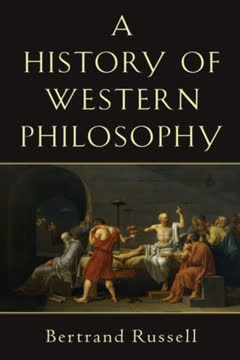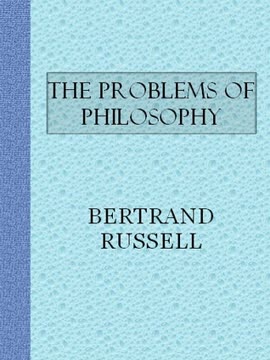Key Takeaways
1. Education shapes society: The individual versus the citizen
That education is desirable is the opinion of all modern civilised States, but is, nevertheless, a proposition which has at all times been disputed by some men whose judgement commands respect.
Education's dual purpose. Education serves two primary functions: to cultivate the individual and to create good citizens. This duality often leads to tension between personal development and societal needs. The challenge lies in balancing these objectives to produce well-rounded individuals who can contribute meaningfully to society.
Historical perspective. Throughout history, educational approaches have varied based on societal needs and political systems. In aristocratic societies, education focused on creating refined individuals, while in democratic societies, it emphasized civic duties. Today, most educational systems attempt to blend both aspects, recognizing the importance of personal growth and social responsibility.
2. Balancing freedom and discipline in education
The negative theory of education contains many important elements of truth, and is largely valid so far as the emotions are concerned, but cannot be accepted in its entirety as regards intellectual and technical training.
Freedom versus structure. The debate between advocates of complete educational freedom and those favoring structured learning environments persists. While freedom fosters creativity and self-direction, some degree of discipline is necessary for acquiring essential skills and knowledge.
Practical implications. A balanced approach might involve:
- Providing structured learning for fundamental skills (reading, writing, mathematics)
- Allowing more freedom in creative subjects (art, music, literature)
- Gradually increasing autonomy as students mature
- Incorporating project-based learning to blend structure and freedom
3. The impact of heredity and environment on learning
It is not too much to say that most of the external activities of powerful States in the present day are concerned with the employment, or the threat, of armed forces, for the purpose of taking away from the less powerful wealth which legally belongs to them.
Nature versus nurture. The debate over the relative importance of genetics and environment in education continues. While genetic factors may influence certain aptitudes, environmental factors play a crucial role in shaping a child's educational outcomes.
Implications for education:
- Personalized learning approaches to accommodate individual differences
- Emphasis on creating supportive and stimulating learning environments
- Recognition of the potential for growth and development in all students
- Caution against deterministic views based solely on genetic factors
4. Emotional development and character formation in schools
To allow oneself to entertain pleasant beliefs as a means of avoiding fear is not to live in the best way.
Holistic education. Schools play a crucial role in shaping not only intellectual abilities but also emotional intelligence and character. Emotional development is fundamental to creating well-adjusted individuals capable of navigating complex social situations.
Key aspects of emotional education:
- Teaching empathy and social skills
- Developing resilience and coping mechanisms
- Fostering self-awareness and self-regulation
- Encouraging ethical decision-making
- Promoting mental health and well-being
5. The role of home and school in a child's upbringing
Our chief criticism of the contemporary school is that it deals with children who spend three-fourths of their time outside and away from the influence of the school, with children who come to school with certain information, certain habits, and at least a disposition towards a certain outlook upon the world.
Collaborative approach. The most effective education involves a partnership between home and school. Both environments significantly influence a child's development, and alignment between them can greatly enhance learning outcomes.
Strategies for integration:
- Regular communication between parents and teachers
- Involvement of parents in school activities and decision-making
- Consistency in values and expectations between home and school
- Recognition of the unique contributions of both environments to a child's growth
6. Education's influence on social class and economic systems
The education of the bureaucrat will be an education for a special type of citizenship.
Perpetuating or challenging inequalities. Education can either reinforce existing social and economic structures or serve as a tool for social mobility and change. The design of educational systems often reflects and influences the broader societal structure.
Key considerations:
- Access to quality education across social classes
- The role of education in economic mobility
- The influence of economic systems on educational priorities
- The potential for education to challenge or reinforce social hierarchies
7. Religion, patriotism, and propaganda in education
Throughout the Western world boys and girls are taught that their most important social loyalty is to the State of which they are citizens, and that their duty to the State is to act as its government may direct.
Critical thinking versus indoctrination. Education often involves elements of socialization that can border on propaganda, particularly in areas of religion and patriotism. The challenge is to foster national and cultural identity while also developing critical thinking skills.
Balancing act:
- Teaching history and civics objectively
- Encouraging critical analysis of societal values and norms
- Promoting global awareness alongside national identity
- Developing media literacy to navigate propaganda
8. Competition and cooperation in the learning process
Competition is not only bad as an educational fact, but also as an ideal to be held before the young.
Rethinking competition. While competition can motivate some students, overemphasis on competitive achievement can be detrimental. Cooperative learning models offer alternatives that can foster both individual growth and social skills.
Benefits of cooperative learning:
- Improved social skills and empathy
- Enhanced problem-solving abilities
- Increased engagement and motivation
- Preparation for collaborative work environments
9. The transformative potential of communist education
Communism offers a solution of the difficult problem of the family and sex-equality – a solution which we may dislike, but which does, at any rate, provide a possible issue.
Radical reimagining. Communist education systems, as exemplified by the early Soviet model, offer insights into alternative approaches to education. While not without flaws, these systems challenge traditional assumptions about the purpose and structure of education.
Key features:
- Integration of education with practical work
- Emphasis on collective rather than individual achievement
- Reduction of class distinctions in educational access
- Focus on polytechnic education combining theory and practice
10. Reconciling individuality with citizenship through education
Can the fullest individual development be combined with the necessary minimum of social coherence?
Balancing act. The ultimate goal of education should be to nurture individual potential while also creating responsible citizens. This requires a delicate balance between personal freedom and social responsibility.
Strategies for reconciliation:
- Developing curricula that value both individual creativity and civic responsibility
- Fostering critical thinking skills that allow for independent thought within a social context
- Encouraging community engagement and service learning
- Promoting diversity and inclusivity to prepare students for a globalized world
- Emphasizing ethical decision-making and social impact in all areas of study
Last updated:
FAQ
What's "Education and the Social Order" about?
- Exploration of Education's Role: The book examines the role of education in shaping both individuals and society, focusing on the tension between individual development and societal needs.
- Historical and Philosophical Context: Bertrand Russell provides a historical and philosophical analysis of education systems, discussing how they have been influenced by political and economic factors.
- Critique of Educational Systems: Russell critiques existing educational systems, particularly their tendency to serve the interests of the state and the ruling class rather than fostering true individual growth.
- Proposals for Reform: The book suggests reforms to create an educational system that balances individual freedom with social cohesion, promoting a more just and equitable society.
Why should I read "Education and the Social Order"?
- Insightful Analysis: The book offers a deep analysis of the relationship between education, politics, and society, making it valuable for educators, policymakers, and anyone interested in social reform.
- Historical Perspective: It provides a historical perspective on how education systems have evolved and the forces that have shaped them, offering lessons that are still relevant today.
- Philosophical Depth: Russell's philosophical approach encourages readers to think critically about the purpose of education and its impact on human development.
- Relevance to Modern Issues: Many of the issues Russell discusses, such as the tension between individuality and conformity, remain pertinent in contemporary educational debates.
What are the key takeaways of "Education and the Social Order"?
- Individual vs. Citizen: Russell explores the conflict between educating individuals as unique beings and as citizens who conform to societal norms.
- Critique of State Education: He criticizes state-controlled education for prioritizing social cohesion over individual development, often serving the interests of the ruling class.
- Need for Balance: The book advocates for an educational system that balances individual freedom with the needs of society, promoting both personal growth and social responsibility.
- Role of Economics and Politics: Russell highlights how economic and political factors influence education, often leading to systems that perpetuate inequality.
What are the best quotes from "Education and the Social Order" and what do they mean?
- "The good individual is he who ministers to the good of the whole." This quote reflects Russell's view that individual development should contribute to societal well-being, challenging the notion that personal and social interests are inherently opposed.
- "Education should do something to afford a training and not merely to prevent impediments to growth." Russell emphasizes the proactive role of education in fostering growth, rather than merely avoiding obstacles.
- "The fundamental characteristic of the citizen is that he co-operates, in intention if not in fact." This highlights the importance of cooperation in citizenship, suggesting that education should cultivate a sense of social responsibility.
- "The scientific state of mind is neither sceptical nor dogmatic." Russell advocates for a balanced approach to knowledge, encouraging open-minded inquiry rather than rigid adherence to dogma.
How does Bertrand Russell view the role of education in society?
- Instrument of Social Order: Russell sees education as a tool often used to maintain the social order, serving the interests of the state and the ruling class.
- Potential for Liberation: Despite its current role, he believes education has the potential to liberate individuals by fostering critical thinking and personal growth.
- Balance of Interests: He argues for an educational system that balances individual development with societal needs, promoting both personal freedom and social cohesion.
- Critique of Conformity: Russell criticizes educational systems that prioritize conformity over creativity, stifling individual potential in the process.
What is Bertrand Russell's critique of state-controlled education?
- Serves Ruling Class Interests: Russell argues that state-controlled education often serves the interests of the ruling class, perpetuating existing power structures.
- Stifles Individuality: He criticizes these systems for stifling individuality and creativity, focusing instead on producing obedient citizens.
- Lack of True Education: According to Russell, state education often fails to provide true education, which he defines as fostering critical thinking and personal growth.
- Need for Reform: He calls for reforms that would create an educational system promoting both individual freedom and social responsibility.
How does "Education and the Social Order" address the tension between individuality and citizenship?
- Central Theme: The tension between individuality and citizenship is a central theme, with Russell exploring how education can balance these often conflicting demands.
- Individual Development: He advocates for education that nurtures individual talents and critical thinking, rather than merely producing conforming citizens.
- Social Responsibility: At the same time, Russell acknowledges the need for education to instill a sense of social responsibility and cooperation.
- Proposed Solutions: He suggests reforms to create an educational system that supports both personal growth and societal cohesion.
What does Bertrand Russell propose for reforming education?
- Balance of Interests: Russell proposes reforms that balance individual development with societal needs, promoting both personal freedom and social responsibility.
- Emphasis on Critical Thinking: He advocates for an education system that emphasizes critical thinking and creativity, rather than rote learning and conformity.
- Reduction of State Control: Russell suggests reducing state control over education to prevent it from serving the interests of the ruling class.
- Focus on True Education: He calls for a focus on true education, which he defines as fostering personal growth and the development of a well-rounded individual.
How does "Education and the Social Order" relate to modern educational debates?
- Relevance of Themes: Many themes in the book, such as the tension between individuality and conformity, remain relevant in contemporary educational debates.
- Critique of Standardization: Russell's critique of standardized education systems resonates with current discussions about the need for personalized learning.
- Role of Education in Society: The book's exploration of education's role in shaping society is pertinent to ongoing debates about educational reform and social justice.
- Influence of Politics and Economics: Russell's analysis of how politics and economics influence education continues to be a critical consideration in modern policy discussions.
What is the significance of the title "Education and the Social Order"?
- Interconnection: The title highlights the interconnection between education and the social order, emphasizing how education systems reflect and reinforce societal structures.
- Role of Education: It suggests that education plays a crucial role in maintaining or challenging the existing social order, depending on how it is structured.
- Focus of the Book: The title encapsulates the book's focus on examining the relationship between education, politics, and society, and the potential for reform.
- Call for Change: It implies a call for change, urging readers to consider how education can be reformed to promote a more just and equitable social order.
How does Bertrand Russell address the influence of economics on education?
- Economic Factors: Russell discusses how economic factors, such as wealth distribution and class structure, influence education systems and perpetuate inequality.
- Utilitarian View: He critiques the utilitarian view of education, which prioritizes economic productivity over individual development and creativity.
- Impact on Curriculum: Economic interests often shape the curriculum, leading to an emphasis on skills that serve the needs of the economy rather than fostering well-rounded individuals.
- Call for Reform: Russell calls for reforms that would reduce the influence of economic interests on education, promoting a system that values personal growth and social responsibility.
What are Bertrand Russell's views on the role of propaganda in education?
- Inevitable Presence: Russell acknowledges that propaganda is an inevitable part of education, as educators naturally express their preferences and biases.
- Potential for Harm: He warns of the potential harm of one-sided propaganda, which can close minds to critical thinking and promote conformity.
- Balanced Exposure: Russell advocates for balanced exposure to different viewpoints, encouraging students to develop their own informed opinions.
- Critical Thinking: He emphasizes the importance of teaching students to critically evaluate propaganda, fostering independent thought and resistance to manipulation.
Review Summary
Education and the Social Order receives mixed reviews, with an overall rating of 3.98/5. Readers appreciate Russell's insights on education, social structures, and the balance between individual and state-focused learning. Some find his ideas thought-provoking and still relevant, praising his lucid writing style. Others note outdated concepts and a potentially overly intellectual approach. The book is seen as challenging conventional educational norms, exploring topics like competition, cooperation, and the impact of class distinctions on learning.
Similar Books










Download PDF
Download EPUB
.epub digital book format is ideal for reading ebooks on phones, tablets, and e-readers.










